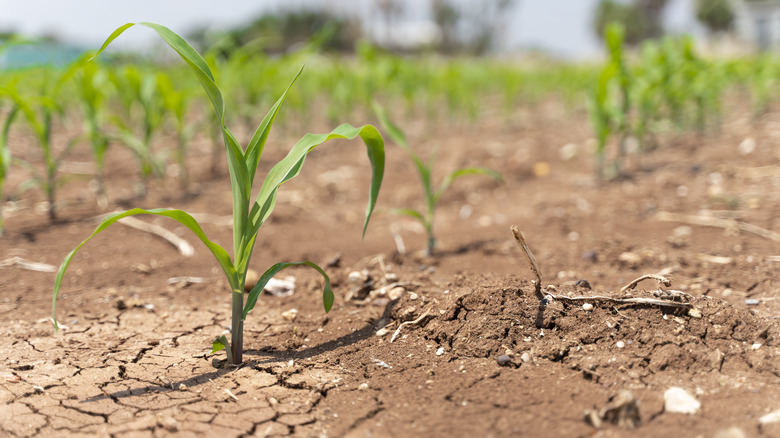As climate change makes farming more difficult, genetically engineered crops are becoming an important solution to help ensure we have enough food. Scientists are developing crops that can handle tough conditions, like drought, heat, and pests. For example, drought-resistant corn and soybeans are being created to conserve water in dry areas. Other crops, like insect-resistant cotton and corn, produce their own natural pesticides, which reduces the need for harmful chemicals. This makes farming more sustainable and helps farmers deal with the unpredictable effects of climate change.
These crops have the potential to make farming more efficient, allowing farmers to grow more food using fewer resources. They can also reduce the environmental harm caused by farming, such as overuse of water and pesticides. This is especially important as the world’s population continues to grow and climate change makes farming harder.
However, there are some concerns about these crops. People worry that genetically modified (GM) plants could crossbreed with wild plants, creating new problems like resistant weeds or pests. While studies show that GM foods are safe to eat, there are still debates about the long-term effects on health. There’s also the issue of big companies controlling the technology behind GM crops, which could make them too expensive for small farmers, especially in poorer countries.

Hi Jose, your post does shine a light on how crops need help defending theirselves. Genetically modified crops can definitely help against the effects of climate change. If we think about we have been breeding and crossing over for centuries different species and varieties in order to get the best apple or potato to cite a few. Used well Genetically modified foods can really helps us to fight also famine in the world.
ReplyDeleteI have always had an aversion toward genetically modified stuff, but thinking in the way that we have been manipulating our crops already for thousands of years, I do not think it matters much anymore. Developing crops that are able to resist against environmental stressors such as these are the way to go.
ReplyDeleteThe ethics of genetically modified crops is always an exceedingly popular topic it these foods continue to become more prevalent within the agricultural world. I think using this technology and genetic crop modification to help sustain those in locations far from agriculturally gifted is an ethically responsible and straightforward movement that should go further.
ReplyDelete